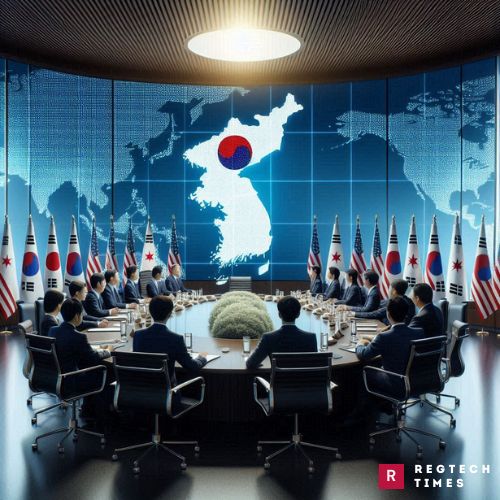In a major shift in geopolitics, the US is now aggressively looking for other ways to oversee and implement sanctions against North Korea in the wake of Russia’s resounding veto at the UN Security Council. This development is a turning point in international attempts to rein in North Korea’s nuclear and missile programs, which have led to rising tensions and increased worries about international security.
The main point of contention arose last month when Russia used its veto power to prevent the reconstitution of a U.N. Security Council panel that has been crucial in monitoring Pyongyang’s adherence to international sanctions. Since its creation over 20 years ago, this panel has served as a pillar of the international effort to keep an eye on North Korea’s nuclear aspirations. China abstains from voting, and Russia’s veto essentially destroys this established monitoring system, leading to urgent calls for a strong and workable replacement.
The United States’ ambassador to the UN, Linda Thomas-Greenfield, explained the problem and the country’s reaction at news conferences. Thomas-Greenfield emphasizes the seriousness and urgency of the issue by stating that the United States is considering alternatives both inside and outside the U.N. system. Forming a coalition with friends like South Korea, Japan, and other like-minded countries is one of the possible possibilities to carry on the important job of the now-defunct panel.
North Korea’s increasing actions, such as a string of missile launches and a heightened preparation for armed action, have prompted this strategic change. These acts have not only frightened surrounding nations but also presented serious obstacles to international peace and security.
A further layer of complication to the already unstable situation is the U.S. accusation against North Korea of providing weaponry to Russia for the latter’s ongoing fight in Ukraine. These assertions have been validated by commercial satellite photography, which demonstrates cargo transfers between Russian and North Korean ports and points to a strengthening of military collaboration between the two countries.
North Korea’s unrestrained nuclear and missile development has wider ramifications, which makes the need for a new monitoring system even more urgent. The most recent major U.N. resolution pertaining to sanctions against North Korea was passed in December 2017, and Russia and China’s shrewd political moves in the Security Council have obstructed ongoing attempts to further tighten these penalties. These events mark a significant change in the diplomatic environment and may make the U.N. less effective as a peacekeeper and an arbiter of global security agreements.
The remarks made by Ambassador Thomas-Greenfield also point to a potential route via the U.N. General Assembly, where the creation of a new oversight body may be permitted under a different voting arrangement. Any effort introduced outside of the established framework of the U.N. Security Council, however, could not have the same degree of international legitimacy and enforcement authority, posing unique difficulties and diplomatic complexities.
Important allies of the United States as well as possible participants from Europe and the Asia-Pacific area may be included in the proposed new panel. In addition to monitoring North Korea’s nuclear operations, this cooperative endeavour would seek to uphold sanctions meant to halt its weapons development. An alliance like this may ensure that efforts to monitor and lessen the risks presented by North Korea continue unabatedly by acting as a counterbalance to the influence that China and Russia exercise within the U.N.
You might also like: Additional US Sanctions on Iran: Here is what you should know
To sum up, the current state of affairs poses a significant challenge to international diplomacy and the ability of governments to adjust to the changing nature of threats to global security. The success of these new institutions will be heavily reliant on their capacity to bring together disparate international entities among intricate geopolitical interests, as the United States and its allies navigate forward.
The outcome of this dispute will have an impact on future international security frameworks as well as the stability of the Korean Peninsula. The United States and its allies have shown a strong commitment to finding alternate routes for enforcement and monitoring, which emphasizes their shared determination to keep control over one of the most urgent security issues facing the globe.



